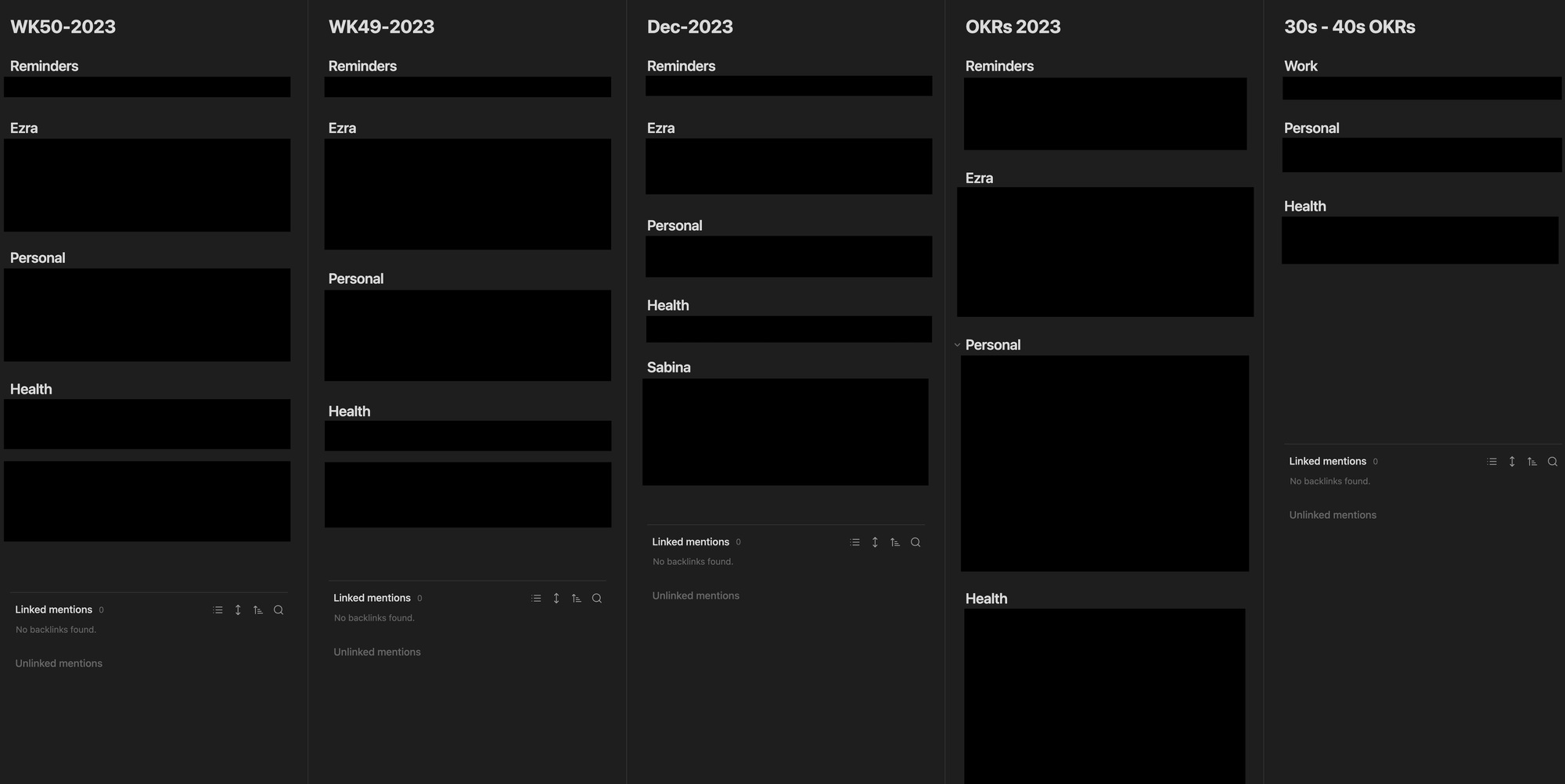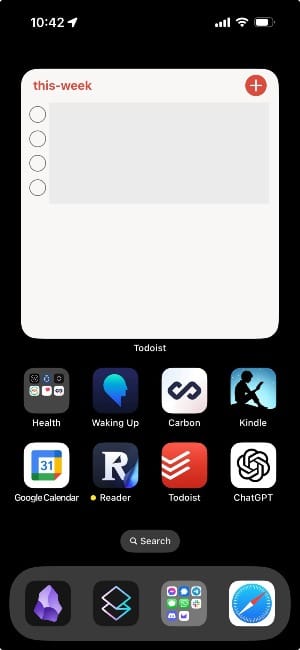My personal OKR framework
I spend the last two weeks of every December planning the upcoming year. It's a process I really enjoy, and over the years I've developed a deceptively simple but highly effective personal objectives & key results (OKR) planning framework. I've been using it for over 15 years and it has helped me accomplish every single one of my long-term goals. I hope it helps you too.
The framework
First off - I think in decades. I'm a big fan of a quote by Google founder Larry Page - "People overestimate what they can achieve in one year, and underestimate what they can achieve in 10."
So how does it work? Every decade, I choose three things I want to achieve within the next 10 years. When I was 20, I set three goals for the decade: exit Brainient (my previous startup, started when I was 19), get married, and move to the US. I achieved all three by my 30th birthday. These 3 decade-long goals must be high-level and ambitious but very specific (i.e. it should be very clear if you’ve achieved it or not). The way to figure out what these should be is by asking yourself the following question: "Will I be satisfied if these are the only 3 things I achieve this decade?"
The decade-long goals are the most important part of the framework, so I never rush the process. I spend months ruminating on what these should be, as I will spend a decade of my life working on them. I also find it useful to discuss them with my wife or close friends.
With my decade-long objectives in hand, every December, I think about what I should work on the following year in order to achieve these long-term goals. I make a list of 3 to 5 work-related, 3 to 5 personal and, more recently, 3-5 health-related goals for the upcoming year. I write them down in a note called "2023 OKRs".
Then, each month, I look at my annual OKRs and make a list of things I need to achieve that month. I put those in a note called "January 2023", "February 2023", and so on.
Then, each week (generally on Sunday evening or Monday morning), I look at my monthly goals and make a list of things I need to achieve that week in order to hit my monthly goals. I put these in a note called "WK1-23" (the week number and the year).
Then, each day, in the morning, I look at my weekly goals and make a list of 3 things I need to achieve that day. Not more, not less. If I achieve those things, I can then work on everything else on my to do list (or take the day off).
And that's it. 10 year goals -> 1 year goals -> 1 month goals -> 1 week todos -> 1 day todos. Ideally, you want the 10-year goals to be set in stone, and you want to achieve 70-80% of your annual, weekly, monthly, and daily objectives.
I don't obsess about crossing everything off my list on a daily / weekly basis, but I do try to achieve the monthly & annual ones. These are the goals that move the needle towards my decade-long goals, so I take them very seriously.
I should also note that the framework is simple but not easy. It takes a lot of discipline, as you need to actually sit down every decade / year / month / week / day and think about what you should be working on. But it's highly effective - I'm in my second decade as an adult and have thus far achieved every single long-term objective I've set.
The implementation
To help you get started, I've put together some implementation details:
First, I recommend you have a separate file / note for each decade, year, month, and week, and do it in a note-taking tool that you use daily. I use Obsidian for all my notes, so that's where I write these. You don't need to use Obsidian, Notion and Apple Notes will work just as fine.
As mentioned above, I do my weekly planning session on Sundays or Mondays. The way I do this is by opening up all the notes, and analyzing what needs to be done from the annual / monthly lists that’s most urgent & important. This is what my Obsidian personal OKR notes look like:

Once I have the weekly plan, I add the weekly objectives in Todoist and tag them "this-week". Once they're tagged, they will automatically show up in a Todoist widget on my iPhone's main screen. So every time I open my iPhone the weekly tasks show up, so I'm constantly reminded of what I should be working on. This is what that looks like:

Every morning, I wake up, look at my weekly list, and add 1-3 tasks for myself in my Todoist and set the deadline as today. I then focus on getting those tasks done FIRST, and then go on with my day. To achieve this, I have a rule that I'll have no zooms or meetings before 10:30 - 11:00 am. This gives me ~2h - 2:30h of productive work before the day expands into a stream of zooms & meetings.
That's pretty much it. It takes discipline, a lot of thinking time (to ensure I'm working on the right things), and a bit of setup time, but it's totally worth doing. You have one life, so it's worth investing time in making sure you're using it to achieve the things that are important to you.
Happy Holidays and happy planning.
